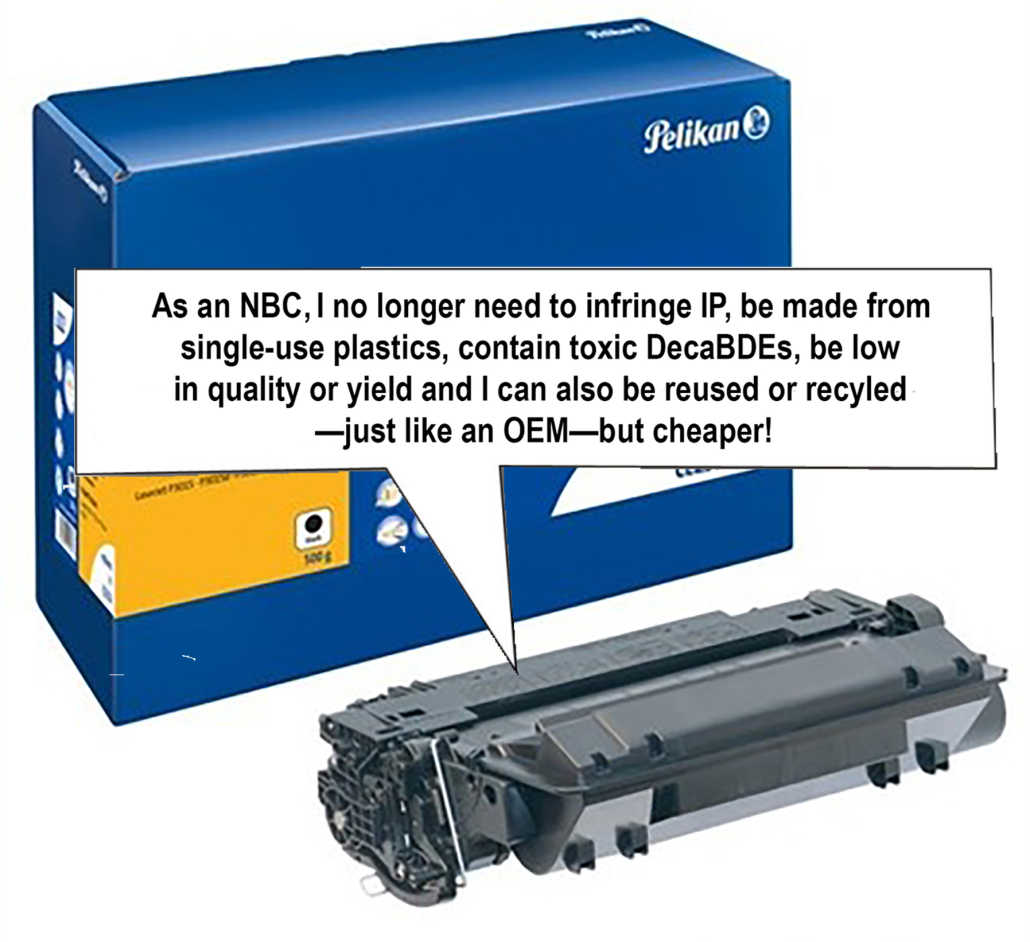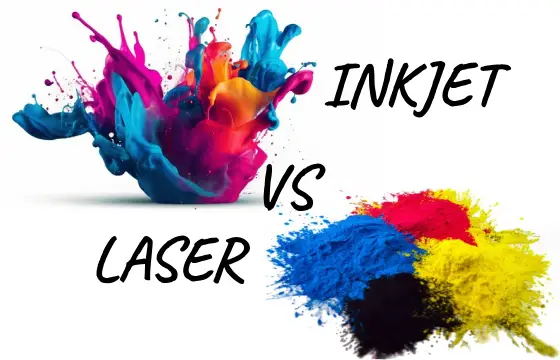Debate: NBCs are Bad for the Environment — I Disagree!
Debate Topic: NBCs are Bad for the Environment
 Arguing in favour (in agreement) with this is Volker Kappius. Kappius is the COO at Delacamp based in Germany and is an advocate for the circular economy. He has a University degree in International Management, Marketing and Organizational Psychology from the University of Hamburg as well as a postgraduate degree in Business Ethics from the University of Hagen. Click here and read his response.
Arguing in favour (in agreement) with this is Volker Kappius. Kappius is the COO at Delacamp based in Germany and is an advocate for the circular economy. He has a University degree in International Management, Marketing and Organizational Psychology from the University of Hamburg as well as a postgraduate degree in Business Ethics from the University of Hagen. Click here and read his response. Arguing against (not in agreement) this is Steve Weedon. Weedon is the Chief Executive Officer of Print-Rite Europe Limited, Print-Rite Pelikan GmbH Germany and Print-Rite Pelikan SAS France. He was the original founder of The Recycler Magazine and of trade shows in Europe. He was Executive Vice-President of Static Control in the USA, then headed up the global Cartridge World network and now is based in the UK. Read his argument below:
Arguing against (not in agreement) this is Steve Weedon. Weedon is the Chief Executive Officer of Print-Rite Europe Limited, Print-Rite Pelikan GmbH Germany and Print-Rite Pelikan SAS France. He was the original founder of The Recycler Magazine and of trade shows in Europe. He was Executive Vice-President of Static Control in the USA, then headed up the global Cartridge World network and now is based in the UK. Read his argument below:
Debate: NBCs are Bad for the Environment — I Disagree!
 Should we all care more about our environment and global warming? Of course.
Should we all care more about our environment and global warming? Of course.
Who likes microplastics in our fish? Or flash fires that erupt as the Earth’s temperature increases, and dry climates get even drier as wet climates get even wetter. As carbon dioxide levels go up so does the temperature, ice melts, sea’s rise and get warmer, more heatwaves, hurricanes, floods, drought’s, wildfires, of course, we all should care and do more, no argument about it.
But who are the cartridge remanufacturers kidding when they say that New Built Cartridges (NBCs) are bad for the environment. What about the OEM cartridges which are new built? Are they bad for the environment? No, we say nothing about OEM originals because they are the lifeblood of remanufacturing. But ask yourself this question, does any single end-user buy an OEM original cartridge because it can be remanufactured? No, is the short answer. NBC’s are no different to the impact upon the environment than OEM cartridges.
Reuse is the best form of recycling according to Hazard’s law, and so it is. When the cartridge remanufacturing industry started around 1990, the entire industry pushed the environmental benefits of recycling for reuse. It was a strong message. Remanufactured cartridges became a second legitimate choice for end-users who wanted to save money and be “green.” In those days remanufacturers would invest in long-life drums and get their cartridges back time and time again, reusing the drum and mag roller for multiple cycles. OEMs, obligingly, over-engineered the cartridge components allowing multiple cycles with just a change of toner. But, this was not to last. Chips arrived in 2000 and the OEM gradually degraded the initial component quality to make sure of a perfect first cycle and a failed second or third cycle. More investment was now needed to remanufacture a non – virgin cartridge empty, it needed more replacement parts and more time to remanufacture and so remanufacturers focused on virgin empties only.
So, at best, today remanufacturers delay cartridge disposal, one cycle. OK, I am not knocking that, but it is a far weaker argument for eco-friendly remanufactured cartridges than it was back in the day.
Over the last few years, the aftermarket has shifted toward new built compatibles (NBCs). Thousands of cartridge remanufacturers have disappeared as a result, because they became simply, uncompetitive. The cost of remanufacturing has risen to a point where margins are thin or non – existent. Virgin empties are expensive and the cost to transport them only goes up. Many remanufacturers turned to compatibles and became resellers, to increase margins and survive. Even the biggest remanufacturers have needed to restructure and change their business models in an attempt also to survive and prosper in a changing industry.
The Remanufacturers mantra hasn’t changed in over 30 years, it’s the same tired, worn-out message, but you would think after so long, that if the message and position was heard and understood the remanufactured cartridge product would sell with a dollar value add. Always less than the OEM price but more than a compatible price. But, that has not happened and only a few dedicated remanufacturers remain. The argument, that compatibles are bad for the environment falls flat. It’s no different than for OEM originals. Remanufactured cartridges at best, using a virgin empty, delays landfill one cartridge cycle. Whoopee! that’s not going to save the planet, guys!
SUC is short for “Single Use Cartridge”, and was coined by ETIRA (European Toner and Ink Remanufacturers Association) to show that, in their opinion, all compatibles are “SUC” and as such, are bad for the environment.
Now frankly there is a lot that is bad about companies making compatibles. They are mostly infringing, poor quality, cheap and SUC cartridges that frequently do not comply with EU regulations and make bogus claims for accreditations and compliance. For my part I do not speak for them. OEMs take action against these companies and no doubt more action will be taken as OEMs defend their patent rights. However, it is wrong and simply misguided to classify all compatible manufacturers and compatible products as being the same. They are not.
Following a 10-month study, Charles Brewer authored and published his Actionable Intelligence white paper in October 2019. He identified Patent Safe Compatibles (PSCs) as being available from some suppliers. They do not infringe patents, they are of good quality, they are fully compliant to EU/USA regulations and laws and, at least in the case of Print-Rite Group, they are not SUC products. Just like the OEM originals, Print-Rite compatibles can be recycled for reuse, using standard parts and supplies. Just like a virgin OEM cartridge. It’s an inconvenient truth for the “all compatibles are bad,” brigade but nonetheless it is the truth.
Dedicated remanufacturers are under real pressure but while the aftermarket has moved on, they seem stuck with the same old arguments and stories, with fewer end-users and resellers actually, listening. Remanufacturing is good when profitable, I do not see it will stop entirely but PSCs are good and are more profitable to resellers. No infringement, consistently good quality, always available, EU/USA DecaBDE compliant, locally distributed, all accreditation compliant and not SUC.
Let’s face it, our industry runs on the back of OEMs who create one-time-use consumables that are not bio-degradable. Recycling for reuse is good, but now it’s virgin cartridge reuse only program. A delay of one cycle before landfill or disposal. Patent Safe Compatibles are good, always available, cheaper than remanufacturing, can be recycled for reuse and are no more harmful to the environment than an OEM empty cartridge or a virgin remanufactured spent cartridge.
But wouldn’t it be great if someone was working on a faster degradable cartridge design. A bio-based design that allowed non-fossil fuel plastics to be used with a bio-based toner that degraded rapidly after disposal. Now that really would be GOOD for the environment. We are getting close, very close. Watch this space.
* This article “Debate: NBCs are Bad for the Environment — I Disagree!” is also published in our latest issue of RT ImagingWorld magazine. Click to download the whole edition, for free.
Related:







Leave a Comment
Want to join the discussion?Feel free to contribute!